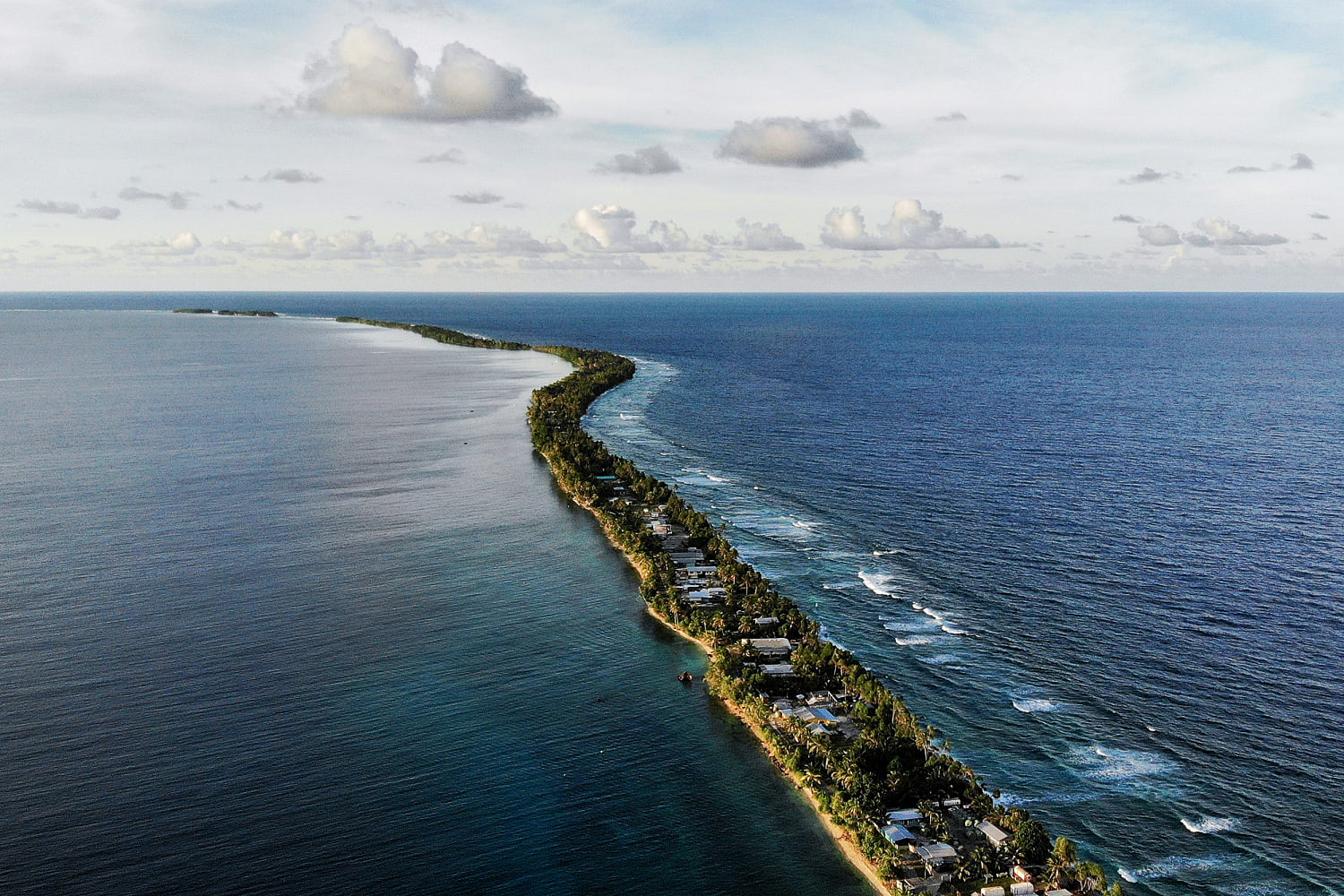
More than one-third of the people in the tiny Pacific nation of Tuvalu, which scientists predict will be submerged by rising seas, have applied for a landmark climate visa to migrate to Australia, according to official figures.
Tuvalu’s ambassador to the United Nations, Tapugao Falefou, told Reuters on Sunday he was “startled by the huge number of people vying for this opportunity”, and the small community was interested to learn who the first lot of climate migrants would be.
Tuvalu, one of the countries at greatest risk from climate change, which experts say is boosting sea levels, has a population of 11,000 on its nine atolls scattered across the Pacific between Australia and Hawaii.
Since applications for Australia’s visa lottery opened this month, 1,124 people have registered, with family members bringing the total seeking the visa to 4,052 under the bilateral climate and security treaty.
Applications close on July 18, with an annual cap of 280 visas designed to ensure migration to Australia does not cause brain drain from Tuvalu, officials said when the treaty was announced in 2023.
The visa will allow Tuvalu residents to live, work and study in Australia, accessing health benefits and education on the same basis as Australian citizens.
“Moving to Australia under the Falepili Union treaty will in some way provide additional remittance to families staying back,” Falefou said.
By 2050, NASA scientists project daily tides will submerge half the main atoll of Funafuti, home to 60% of Tuvalu’s residents, where villagers cling to a strip of land as narrow as 65 feet. That forecast assumes a 1-metre rise in sea levels, while the worst case, double that, would put 90% of Funafuti under water.
Tuvalu, whose mean elevation is just 6 feet 7 inches, has experienced a sea-level rise of 6 inches over the past three decades, one and a half times the global average. It has built 7 hectares (17 acres) of artificial land, and is planning more, which it hopes will stay above the tides until 2100.
